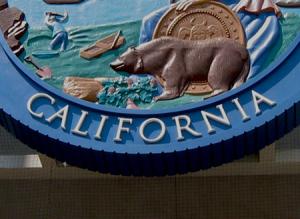California OKs Manure-to-RNG Pilot

The California Public Utilities Commission agreed to several new trial programs that provide for biomethane gas to be introduced into the state’s natural gas pipeline system.
The pilot projects are targeted at reducing emissions of methane gas from the manure left behind by dairy cows in the Central Valley. According to estimates proffered by expert witnesses, the biogas program could lower methane emissions statewide by as much as 40% by 2030, leading to significantly improved air and water quality in farming regions of the state. Citing data indicating that emissions from manure account for approximately 26% of the state’s total methane emissions, and referencing scientific studies showing that methane is one of the most potent of the greenhouse gases, the commission deemed it critical that the state embrace methane-reduction programs.
On that point, the commission commented that while carbon dioxide emissions are widely viewed as a primary factor in climate change, methane emissions are actually 25 times more powerful than carbon dioxide. The commission’s decision on the biomethane pilots came in response to passage of Senate Bill (SB) 1383, which directed the commission to explore the propriety of using biogas, also referred to as renewable natural gas (RNG), as a replacement for traditional natural gas. The commission related that SB 1383 seeks to lower methane emissions in California by the aforementioned 40% by 2030.
But the commission explained that the biogas pilots would actually serve two purposes. It conveyed that in addition to mitigating the level of methane emissions in the state, the RNG pilots also would demonstrate the usefulness of RNG for generating electricity, supplying space and water heating, and producing renewable vehicle fuels. In announcing the RNG programs, the commission stated that the pilots will help turn a waste product into renewable energy. However, the commission conceded that the process for converting biomethane into RNG that can be accommodated by existing pipeline systems is more complex than conventional gas “conditioning.” Thus, the commission said, some pipeline infrastructure modifications and expansions would be necessary, which obviously would entail some level of investment.
However, cognizant that the RNG pilots are trial programs only, the commission determined that gas utilities should not be required to own the biogas collection lines. Instead, the commission found that gas utilities need be responsible only for those facilities located downstream of the collection and conditioning facilities. For those infrastructure upgrade costs that are the utilities’ responsibility, the commission ordered that a memorandum account mechanism be instituted to track such expenditures, with ratepayers and shareholders equally liable for all costs not exceeding the utility’s projected budget. For any costs that do surpass the utility’s cost estimates, the commission will preside over a reasonableness review.
In addressing the RNG pilots, the commission told utilities that any expenses incurred in trucking supplies of biomethane to a collection point could not be reflected in their infrastructure expansion costs. The commission clarified that such transportation by truck could not be treated as a “pipeline equivalent” cost. Re Dairy Biomethane Pilot Projects, Decision 17-12-004, Rulemaking 17-06-015, Dec. 14, 2017 (Cal.P.U.C.).



